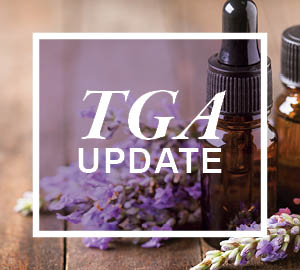ATMS response to TGA’s public consultation on amending the Poison Standards
- News
- ATMS response to TGA’s public consultation on amending the Poison Standards
ATMS has submitted a response regarding the proposed amendments to the Poisons Standard.
The Therapeutic Goods Administration (TGA) released a public consultation on amending the Poisons Standard regarding Camellia sinensis (Green tea) extract, amygdalin and hydrocyanic acid.
Accredited practitioners, such as Naturopaths and Herbalists, who maintain membership of an accredited association and fulfil mandatory continuing professional education (CPE) requirements, can prescribe herbal medicines and foods for the management and treatment of various health conditions. Wild Cherry Bark (Prunus serotina), among other herbal medicines and foods containing amygdalin and hydrocyanic acid, are used in the management and treatment of various health conditions. Additionally, herbal medicines and foods containing amygdalin and hydrocyanic acid have been consumed by populations worldwide for thousands of years, are also accessible to the general public, and are considered low risk and low risk for misuse. Camellia sinensis (Green tea) extract is regularly used in Listed Medicines.
The TGA note that products containing Camellia sinensis (Green tea), and more specifically Camellia sinensis extracts, have been implicated in cases of liver injury worldwide. Safety concerns have arisen from many published case reports in the literature, including cases in Australia that were reported to the TGA and to other regulators in overseas jurisdictions. An application was made to amend the Poisons Standard in July 2022 to include Camellia sinensis extract in Schedule 2 except when labelled with warnings to take with food and advising consumers to be aware of symptoms of liver injury.
CONSIDERATIONS AND RECOMMENDATIONS
There are 5 Considerations and Recommendations included in this Public Consultation.
1. Schedule 5 – Suggested New Entry for Camellia sinensis
ATMS supports this recommendation for the Suggested New Entry for Camellia sinensis for oral use, except
- in products included on the Australian Register of Therapeutic Goods and, where applicable, compliant with the requirements for Camellia sinensis in the current Therapeutic Goods (Permissible Ingredients) Determination.
- in preparations containing not more than 300 mg of epigallocatechin-3-gallate per maximum recommended daily dose (MRDD).
2. Schedule 10 – SUGGESTED Amended Entry: amygdalin and hydrocyanic acid
ATMS supports this recommendation for the amendment for Amygdalin for therapeutic use except in preparations containing 10 mg/kg or less of amygdalin.
3. Schedule 7 – SUGGESTED Amended Entry: Hydrocyanic acid
ATMS supports this recommendation for the amendment for Hydrocyanic acid, except:
- when included in Schedule 4;
- its salts and derivatives other than cyanides separately specified in this Schedule; or
- in preparations containing 10 mg/kg or less of hydrocyanic acid.
4. Schedule 4 – SUGGESTED Amended Entry: Hydrocyanic acid
ATMS supports this recommendation for the amendment for hydrocyanic acid for therapeutic use except in preparations containing 10 mg/kg or less of hydrocyanic acid.
5. Schedule 10 – Suggested New Entry: Wild Cherry Bark
- ATMS does not support this proposed Schedule 10 entry for Wild Cherry Bark.
- ATMS proposes that the limits for amygdalin (10 mg/kg or less) and hydrocyanic acid (10 mg/kg or less) should apply equally to Wild Cherry Bark. Wild Cherry Bark is not a substance at risk of misuse.
Other News In This Category

Prime Medic Group issued infringement notices for alleged unlawful advertising of weight loss medicines.
